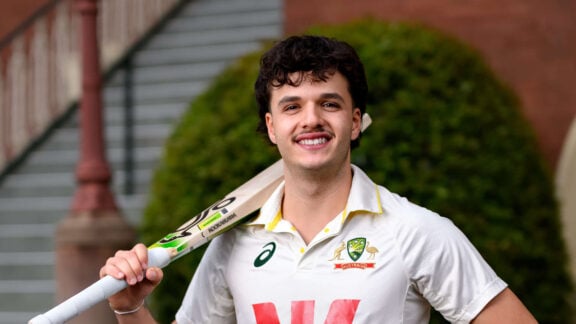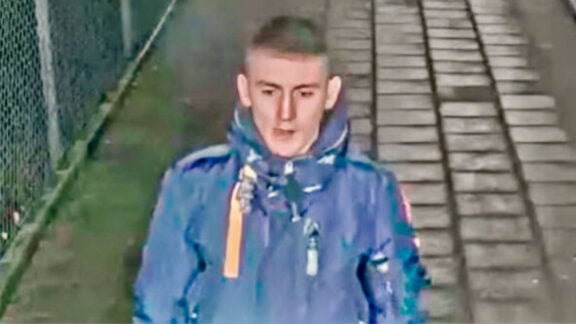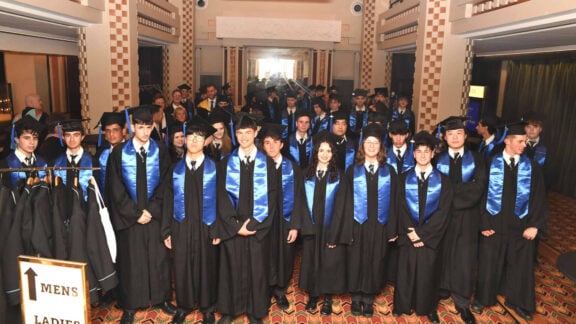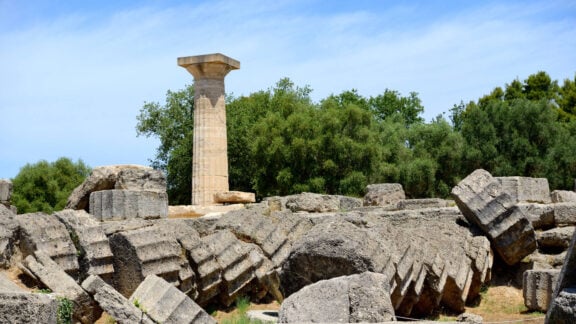Josh Burns, the Labor MP for Macnamara, told Neos Kosmos and other media that he will run an open ticket at the upcoming federal election on May 3, choosing not to direct preferences to any party on his how-to-vote card.
Burns, who is Jewish, will not preference the Greens last. Macnamara—a diverse electorate covering Port Melbourne, Middle Park and inner southeastern suburbs—is home to large Jewish and Greek communities, as well as an influx of gentrifying professionals who may lean Green. The seat remains out of Coalition reach, but Labor risks losing it to the Greens.
“Labor has had a much stronger start to the campaign than Peter Dutton,” Burns said. “I hope people give us the important responsibility and the great gift of being the government of Australia.”
Burns, cited key priorities: fixing Medicare, transitioning to cheaper energy, supporting families, and building more homes.
He acknowledges Macnamara’s evolving demographics. Once rusted-on Labor voters, many Jews and Greeks have shifted. The war between Hamas and Israel has alienated many Jewish voters from the Greens, who are seen as anti-Israel and, by some, antisemitic. Labor has also drawn criticism from parts of the Jewish community for what they perceive as a diluted stance on Israel.
While Greeks have traditionally supported Labor, growing numbers have gravitated toward the Coalition, driven by aspiration and upward mobility. The Coalition is not expected to win Macnamara, the Greens are a threat.

Since the October 7 attacks by Hamas, Greens leaders have come under fire from Jewish groups for downplaying or enabling antisemitism. In November 2023, Senator Mehreen Faruqi was photographed next to a protester holding a sign depicting the Star of David being thrown in a bin. In early 2024, NSW Greens MP Jenny Leong made headlines for referencing the “tentacles” of the “Jewish lobby” in a speech—language widely condemned as anti-Semitic.
“There are many issues people vote on, but it often comes down to a simple question: ‘What matters to me and my family?’ And that’s true for the Jewish and Greek communities,” Burns said.
He pivoted to the pressures of inflation, noting Labor’s efforts to deliver cost-of-living relief through energy bill support, cheaper medicines, affordable childcare, and tax cuts.
“The Greek community is one of the hardest-working communities. Greeks came here with nothing and worked their tails off to build a better life—and passed that ethic through generations,” he said.
Tax cuts, he added, would make a “big difference in the long term.”
Burns also spoke of diaspora influence in global trade relations, especially as the world faces geopolitical shifts, including the unpredictability of former U.S. President Donald Trump.
“Greek, Jewish, and other diasporas can help build global trade networks,” he said. “We’ve revived talks on a European free trade agreement and want stronger ties with countries like Greece, where we share deep cultural connections.”
He described Melbourne as “one of the great Greek cities of the world” and praised the strong Greek representation across all levels of government.
The Jewish and Greek diasporas understand the complexity of identity, belonging, and loyalty to ancestral homelands. Neos Kosmos asked how he reconciles community tensions during global crises.
“You must be respectful. What’s important in Australia is how we talk about difficult topics. The Greek community has always welcomed me—’ Come in, have a coffee, let’s talk.’ It’s about people-to-people connection, not angry posts on social media.”
For the Greek community, Burns said, “nothing was given and everything was earned.”
Jewish and Greek communities “look to the next generation, look to their grandkids, and want the very best for them.”
He recalled his childhood, growing up next to Greek neighbours, “Every day after school, they’d welcome us in with warmth and food. That’s how we should treat each other—with respect. And when you give it, you get it back.”









